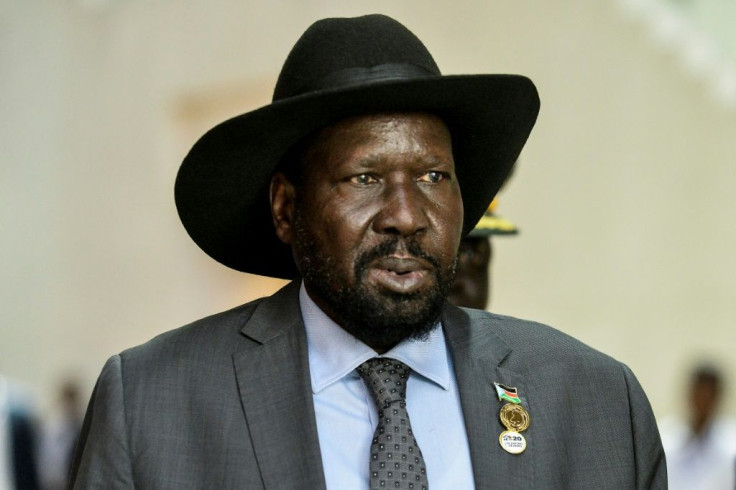South Sudan President Offers Key Compromise For Peace

South Sudan's president said on Saturday he would return to a system of 10 states, a key opposition demand, paving the way for a unity government and an end to the country's civil war.
"The compromise we have just made is in the interest of peace...I expect the opposition to reciprocate," Salva Kiir said, after a meeting of top government and military officials in the capital Juba.
Kiir said the country would now be divided among the original 10 states, plus three "administrative areas" of Pibor, Ruweng and Abyei.
The opposition welcomed the move but immediately raised questions over the fate of Ruweng, a key oil producing zone.
The number of states is contentious because the borders will determine the divisions of power in the country.
Kiir and rebel chief Riek Machar -- who lives in exile -- are under increasing pressure to resolve their differences by February 22 and form a unity government as part of a peace agreement.
They have already missed two previous deadlines to enshrine peace and end a six-year conflict that has left at least 380,000 people dead and millions in dire poverty.
Kiir and Machar met last week in neighbouring Ethiopia but the talks ended in deadlock.
However, Saturday's announcement meant a key concern of Machar appeared to have been resolved.
"This decision may not have been the best option for our people, but for the sake of peace and unity in the country, the Presidency sees it necessary," a government statement said.
But after the surprise announcement, Machar's party said they welcomed Kiir's compromise but opposed splitting off oil-rich Ruweng.
Oil provides almost all of the government's revenue in South Sudan, one of the most oil dependent nations in the world.
Ruweng has been one of the most heavily fought over areas in the civil war and is claimed by both the Dinka people of Kiir and the Nuer of Machar.
"We welcome this decision but we only have one complaint; the establishment of Ruweng Administrative Area," said opposition party spokesman Pouk Both Baluang. "The issue of the states has not been resolved completely."
But Baluang said he expected Kiir and Machar to meet soon to discuss their differences. Kiir said the final matter of states would be debated once the unity government forms.
When it gained independence from Sudan in 2011, South Sudan had 10 states, as set out in its constitution. Kiir increased that in 2015 to 28, and then later 32.
Kiir had repeatedly refused to back down on the number of states but had come under intense international pressure to compromise.
Fighting has abated since September 2018 when Kiir and Machar -- old rivals who have fought and made up multiple times -- signed a deal to end the the bloodshed that erupted in 2013, when the president accused his former deputy of plotting a coup.
They agreed to come together in a coalition in May last year but disputes over territory and security arrangements dogged negotiations and the deadline was missed, followed by another six months later.
In November, the pair were given 100 more days to resolve these sticking points -- an extension that finishes next Saturday.
Any extension beyond February 22 was "neither desirable nor feasible", the eight-nation East African bloc of nations, IGAD, warned last week.
South Sudan vice president Taban Deng Gai said Machar must now return from exile to help form the government.
© Copyright AFP 2024. All rights reserved.





















